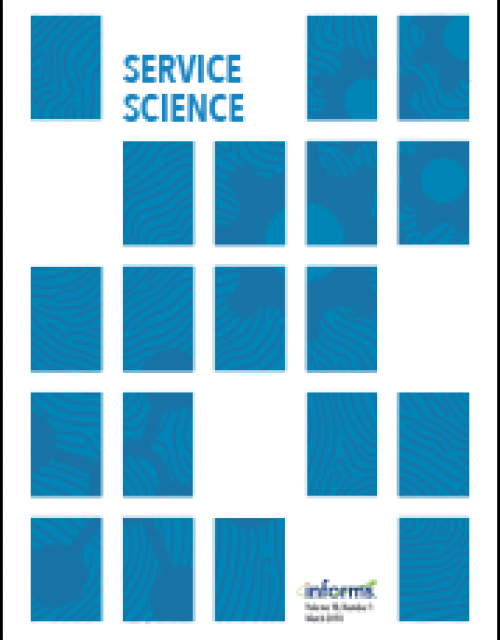Publication records
Subject(s)
Health and environment; Information technology and systems
Keyword(s)
Public health, epidemic control, information design, strategic behavior
This paper explores how governments may efficiently inform the public about an epidemic to induce compliance with their confinement measures. Using an information design framework, we find the government has an incentive to either downplay or exaggerate the severity of the epidemic if it heavily prioritizes the economy over population health or vice versa. Importantly, we find that the level of economic inequality in the population has an effect on these distortions. The more unequal the disease's economic impact on the population is, the less the government exaggerates and the more it downplays the severity of the epidemic. When the government weighs the economy and population health sufficiently equally, however, the government should always be fully transparent about the severity of the epidemic.
View all ESMT Working Papers in the ESMT Working Paper Series here. ESMT Working Papers are also available via SSRN, RePEc, EconStor, and the German National Library (DNB).
Pages
41
ISSN (Print)
1866–3494
Subject(s)
Strategy and general management; Technology, R&D management
Keyword(s)
crowdsourcing, innovation, distant search
Volume
12
Journal Pages
25–29
Subject(s)
Economics, politics and business environment
Keyword(s)
Platforms, tipping, dynamic competition
Multi-sided platform markets have tendency to “tip”, that is, one MSP takes it all or dominates the market by far. Due to dynamics of these markets it is however challenging to identify which markets will tip and the characteristics of tipping candidates ex-ante (before tipping). The European Commission has expressed the need for a new competition tool to identify and assess the likelihood of tipping. Based on a review of factors that foster and mitigate tipping we propose four key questions that may help in ranking multi-sided platform markets by the likelihood of tipping. Tipping is less likely if there are factors that 1) diminish the value of a growing multi-sided platform, 2) ease smaller rivals’ user acquisition, 3) make smaller rivals attractive to at least some users, and 4) make none of the established platforms stronger via activities in another market.
Volume
11
Journal Pages
610–622
Subject(s)
Management sciences, decision sciences and quantitative methods
Keyword(s)
Service, big data, machine learning
In this short paper, we discuss the impact of data analytics in services and delineate future research directions for the field. After illustrating how data analytics are transforming different service sectors, we consider the provision of data analysis as a service in its own right. We discuss how the very nature of data and certain features of the machine learning method give rise to new issues and pitfalls for the management of these services, which delineates as many future research directions. We also discuss the co-production of services by humans and machines, and call for more research on responsible data analytics services to tackle some of the most pressing ethical issues in our societies.
Copyright © 2020, INFORMS
Volume
12
Journal Pages
121–174
ISSN (Online)
2164-3970
Subject(s)
Strategy and general management
Keyword(s)
Crowdsourcing, organizational design, innovation
Crowdsourcing—asking an undefined group of external contributors to work on tasks—allows organizations to tap into the expertise of people around the world. Crowdsourcing is known to increase innovation and loyalty to brands, but many organizations struggle to leverage its potential, as our research shows. Most often this is because organizations fail to properly plan for all the different stages of crowd engagement. In this paper, we use several examples to explain these challenges and offer advice for how organizations can overcome them.
Volume
9
ISSN (Online)
2245-408X
Subject(s)
Entrepreneurship; Ethics and social responsibility; Finance, accounting and corporate governance; Strategy and general management
Keyword(s)
Social return on investment, sustainability, high impact investing, social responsibility
Secondary Title
High Impact Investing: Erfolgsfaktoren für die Finanzierung von Social-Entrepreneurship-Projekten
Pages
69–77
ISBN
978-3930048847
Subject(s)
Information technology and systems
Keyword(s)
Surveillance, constitutional law, human rights, freedom of information, freedom of expression, journalism, disinformation, fake news
The Federal Chancellery recently finished its first draft of the revised Foreign Intelligence Service Law (BND-Gesetz) that has become necessary subsequent to the judgment of the Federal Constitutional Court in May of 2020. While the draft bill contains numerous improvements, some crucial provisions pertaining to the treatment of journalists and their trusted sources remain insufficient. The article analyses some of the problems.
Subject(s)
Strategy and general management; Technology, R&D management
Keyword(s)
Organizational design, new forms of organizing, remote work, all remote, virtual organizations, COVID-19
GitLab is a software company that works “all remote” at the scale of more than 1000 employees located in more than 60 countries. GitLab has no physical office and its employees can work from anywhere they choose. Any step of the organizational life of a GitLab employee (e.g., hiring, onboarding and firing) is performed remotely, except for a yearly companywide gathering. GitLab strongly relies on asynchronous coordination, allowing employees to work anytime they want. After highlighting some of the main practices implemented by GitLab to effectively work all remotely and asynchronously, I asked renowned organizational scientists their thoughts on this interesting case and to question the generalizability of the all remote asynchronous model. Understanding whether and under what conditions this model can succeed can be of guidance for organizational designers that are now considering different remote models in response of the COVID-19 shock and its aftermath.
Volume
9
ISSN (Online)
2245-408X
Keyword(s)
digital transformation, human rights, cyberwar, surveillance, espionage, cybercrime, autonomous weapons systems
Over the past two decades, the progressing digital transformation has brought along a growing number of challenges in the context of security: internet crime, cyberwar and espionage, surveillance and autonomous weapons systems. While increased security measures seem indispensable, they need to be weighed against individual human rights guarantees. This chapter provides an overview of the pertinent questions.
Volume
344
Journal Pages
52–61
Subject(s)
Human resources management/organizational behavior; Strategy and general management
Keyword(s)
Success, ideology, influence
ISSN (Print)
0015-6914
